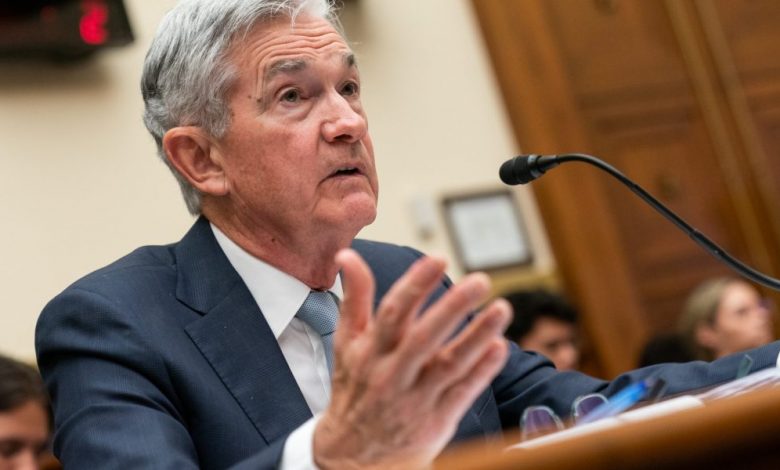Stagflation ahead despite soft landing hopes, say 92% of fund managers

On the most optimistic corners of Wall Street, promising inflation data for the past week or so suggests the Federal Reserve could achieve a soft landing after all.
But no such belief prevails among big money managers who are betting that an economic downturn, peppered with still-hot price pressures, will dominate trading next year.
As a closely watched section of the Treasury yield curve sends fresh recession signals, stagflation is the consensus view of a whopping 92% of respondents in Bank of America Corp’s latest fund manager survey.
At the same time, Citigroup Inc. paints a “Powell Push” scenario in which the Fed will be forced to rise even if growth slumps, while BlackRock Inc. sees no prospect of a soft landing in either the US or Europe.
The bearish stance comes even as the latest data on employment, consumer and producer prices – combined with decent corporate earnings – suggest the Federal Reserve may indeed successfully fulfill its high-wire mission of raising the cost of borrowing without crashing the business cycle bring to.
For now, however, the professional investor class needs to see more conclusive evidence of a favorable turn in economic activity before making any major shifts in defensive positioning in the troubled world of equities and bonds.
“Central banks will tighten too much, pushing economies into a moderate recession, but stop rising before they’ve done enough to bring inflation fully on target as the damage from rate hikes becomes more apparent,” Wei Li said. Global Chief Investment Strategist at Black Rock.
Li sees slowing US growth, earnings downgrades and increased pricing pressures justifying the company’s underweight position in developed market equities and bonds, although it is willing to put some money back into corporate bonds. Her stance is supported by Bank of America investors, who overwhelmingly see stagflation on the horizon. The company’s latest survey shows it is historically underweight equities — with technology stocks’ positioning at its lowest since 2006 — and overweight cash.
The pessimism is offset by a bout of exuberance prompted by last week’s US inflation report which suggested price pressures could be peaking. This fuels debate over whether the Fed has room to slow the pace of rate hikes.
The latter was summarily dismissed by a parade of currency officials this week. Among the most hawkish, St. Louis Fed President James Bullard said policymakers should raise interest rates to at least 5% to 5.25% to curb inflation. This comes after San Francisco Fed Chair Mary Daly said a pause in the business cycle was “off the table,” while Kansas City Fed Chair Esther George warned the Fed could find it increasingly difficult to break the bank Tame inflation without triggering a recession.
As rate hikes fuel bear markets in stocks and bonds, the Fed has gone from bullish friend to newfound foe. And in the foreseeable future, no pigeon policy swing is likely. Citi, for example, is touting the idea of the “Powell push,” in which the Jerome Powell-led central bank is forced to raise interest rates to slow growth in the face of still-raging impending inflation.
“We rate the environment as stagflationary,” said Citi strategist Alex Saunders. He recommends selling US stocks and credit and buying commodities and bonds in a Powell push scenario.
Invesco is also cautious, tilting exposure to defensive stocks with overweight bets in Treasuries and US investment grade bonds.
“A signal that risk-taking is turning would be signs that the Fed is about to ‘pause’ rate hikes,” said Kristina Hooper, chief global market strategist at Invesco.
Even Morgan Stanley’s Andrew Sheets — who has a minority view that core inflation will fall to 2.9% by the end of 2023 — isn’t ready to take the full risk amid the prospect of an economic slowdown. Nevertheless, he cites the mid-1990s as a reason for optimism. Back then, in an era marked by elevated inflation and rising interest rates, stocks and Treasuries finally managed to make big gains.
“Bears say soft landings are rare. But they happen,” Sheets wrote in his outlook for next year.
Our new weekly Impact Report newsletter will examine how ESG news and trends are shaping the roles and responsibilities of today’s leaders – and how best to address these challenges. Subscribe here.



